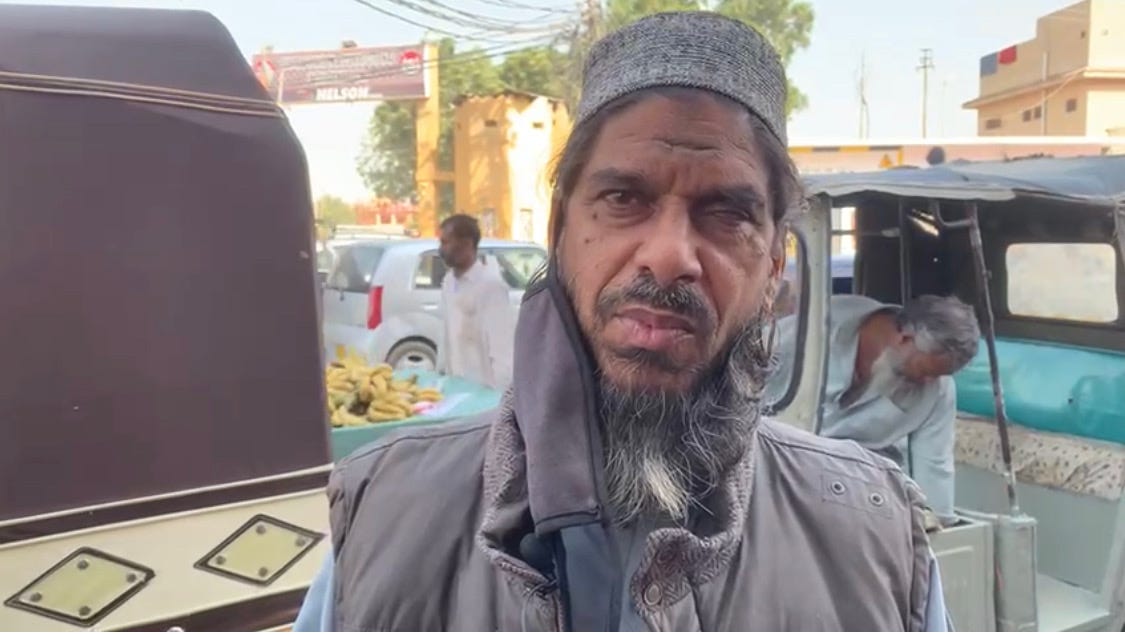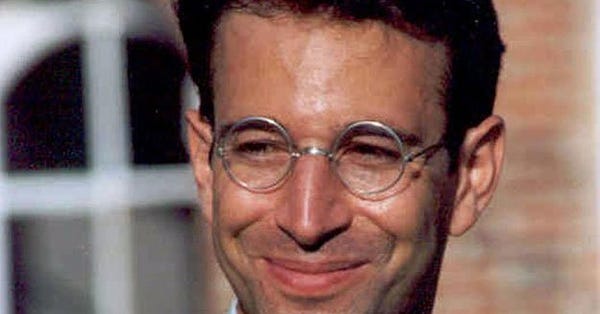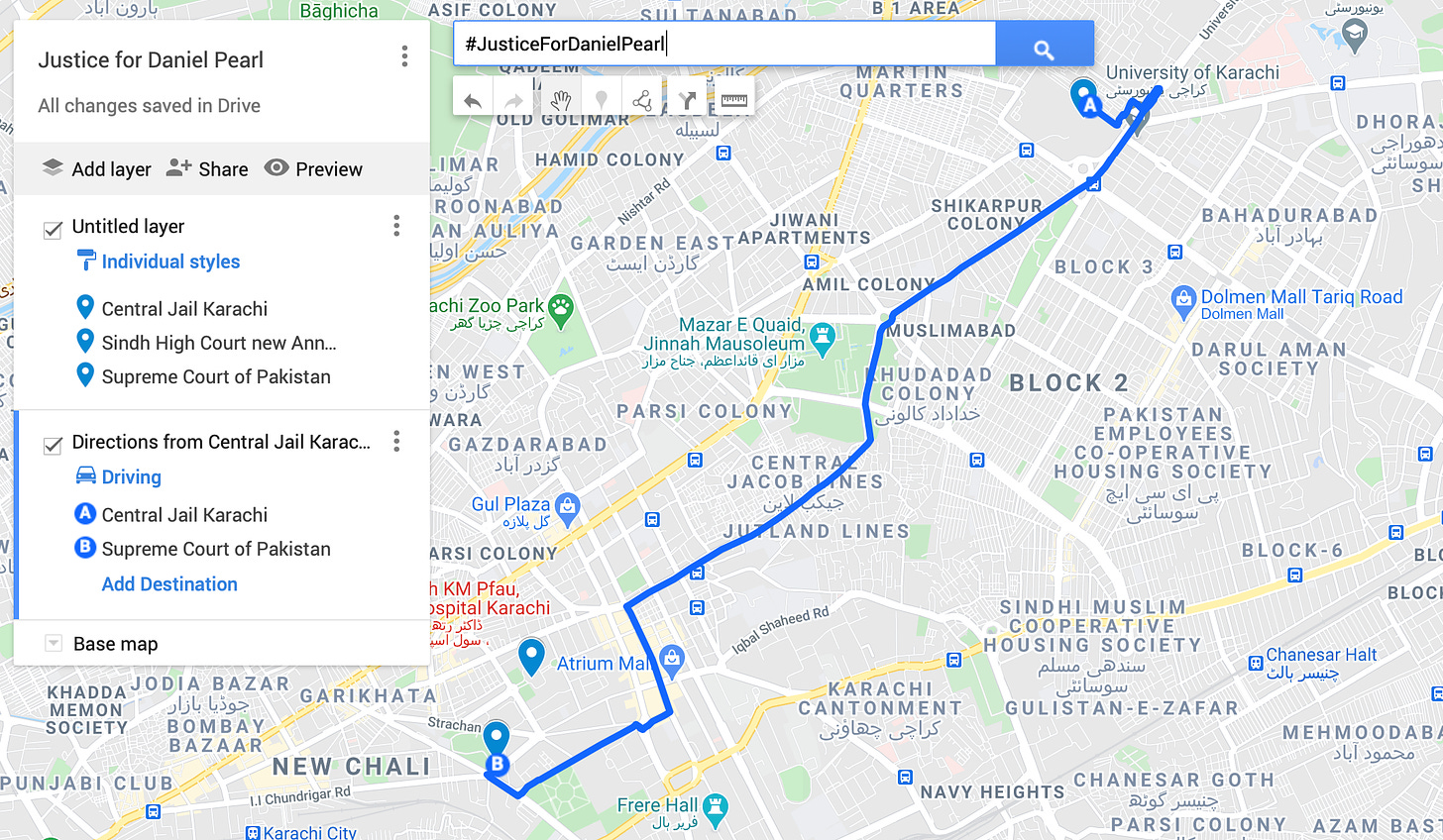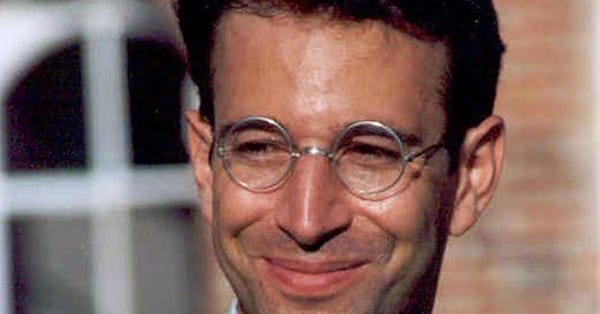Justice Hangs in Balance for Daniel Pearl
Supreme Court Chief Justice could save the day -- and future of Pakistan
Updated Monday, Dec. 28, 2020, 1:17 a.m. Eastern Time. For a Pearlpedia of documents in the case, go to this link. For the latest December 24 Sindh High Court ruling freeing the men convicted in Daniel Pearl’s killing, go to this link.

By Asra Q. Nomani
As the day began in Pakistan on Saturday, December 26, it was high drama in Karachi, the port city where, almost to the day 18 years ago, Wall Street Journal reporter Daniel Pearl played sand volleyball with friends in a bustling part of the city, weeks before being kidnapped and brutally losing his life alone in a remote compound in a lonely corner of the city, far from friends, family and loved ones.
In Karachi, news reporters are carefully tracking developments in two spots, five miles from each other: the doors of the Karachi Central Jail and the Karachi base of the Supreme Court of Pakistan. It’s there that we will know whether Omar Sheikh, the mastermind of Pearl’s 2002 kidnapping, and three coconspirators will be able to use get-out-of-jail-free cards that a controversial lower court judge gave them days ago — or not.
Early Saturday morning, as cars, motorcycles, auto rickshaws and a fruit vendor pushing a cart of ripe bananas streamed by the busy road outside the jail, Sheikh Muhammad Aslam, an older brother of Sheikh’s coconspirator, Sheikh Adil, stood outside the entrance. “They are not allowing us to enter,” he told journalist Anas Mallick. When his brother is released, he had one plan, he said: “I will take him home.”
But, not so fast, if authorities have their way. People familiar with the proceedings say that that the Sindh government is expected to appeal the freeing of the four men as early as Saturday to the Supreme Court, or possibly Monday, and Supreme Court Chief Justice Gulzar Ahmed, in Karachi to lead proceedings for the court over the holidays, is likely to step in and block the men’s release — and save Pakistan from the shocking headline of freeing the men convicted in Pearl’s murder.

As family members of the convicted men awaited their released, Wall Street Journal reporter Saeed Shah filed a story on Saturday, headlined, “Pakistan Seeks to Continue Detention of Man Convicted of Murdering Wall Street Journal Reporter Daniel Pearl.” Shah, a respected journalist who has reported on efforts to defeat the militancy in Pakistan, wrote: “…Pakistani authorities were seeking new legal means to continue to detain the man convicted in 2002 as the mastermind of the kidnapping and killing of Wall Street Journal reporter Daniel Pearl, officials said, after a court Thursday ordered the man’s release.”


Leading Pakistan Supreme Court reporter Hasnat Mallick reported on Sunday that the Sindh Government “will not release these men in view of a Supreme Court order.” He wrote: “Sources told The Express Tribune that the PPP-led Sindh government believes that the Supreme Court’s September 28 order with regard to Daniel Pearl case accused is still in the field.” That order held the men in detention while the Supreme Court deliberated their case. The PPP is the Pakistan People’s Party, whose leader, Benazir Bhutto, was murdered 13 years ago on Dec. 27, 2007, after she had returned to Pakistan from exile to run for political office.
If the Supreme Court doesn’t act to detain the men, Plan B for government officials could be to free the four men and rearrest them, a practice often used in Pakistan to keep alleged criminals in jail, said people familiar with the case.
Either way, the men were not expected to be released Saturday—or any days soon.
The tamasha — the Bollywood term for “drama” — set in motion by a local activist judge to free the men, underscores just how perilous justice is for the Pearl family — and the future of Pakistan, as leaders try to challenge the culture of extremism tracing back decades and taking off in the 1990s, when Pearl’s kidnapper, Omar Sheikh, first became radicalized.


As Pearl’s parents, Ruth and Judea Pearl, said in a statement on Christmas Day, “We refuse to believe that the Pakistani government and the Pakistani people will let such a travesty of justice tarnish the image and legacy of Pakistan. We believe that our son’s murderers should remain in jail because of the Supreme Court Appeals, and we are also heartened to hear the Government of Pakistan is filing an appeal against the latest release order so that our son's murderers will remain in jail and justice will prevail. We have full confidence in the Supreme Court of Pakistan to provide justice for our beloved son and reinforce the paramount importance of the freedom of the press.”


The morning of Christmas Eve, a two-judge panel for the Sindh High Court, led by activist judge K.K. Agha, issued the shocking ruling, freeing the four men. By late afternoon, the court had issued its official written orders, but too late for jail authorities to release the men. That day, their family members had rushed to the jail to greet the men as they were freed, according to observers, leaving disappointed. With Friday an official holiday for Christmas, Friday prayers and the birthday of the founder of Pakistan, Muhammad Ali Jinnah, the men were not going to be freed, making Saturday the first day their freedom would be possible.
Agha began this tamasha this past spring when he issued a ruling on April 2, 2020, in an appeals case by Sheikh and his three coconspirators, concluding that all four men were innocent of terrorism, exonerating Sheikh’s three codefendants fully and concluding Sheikh was guilty of simple abduction, a lesser crime than kidnapping and murder.
The decision sent shock waves through the world and the journalism community, especially as people were grappling with the spreading COVID-19 pandemic. It came also as Agha, a British Pakistani, faced scrutiny for allegedly not claiming properties in the U.K. in his documentation of assets.
By early May 2020, the government of Sindh and Pearl’s parents, Ruth and Judea Pearl, filed an appeal to the Pakistan Supreme Court, and the Supreme Court agreed to hear the case in September. The Pearl family attorney, Faisal Siddiqi, was just making his remarks before a three-panel bench of the Supreme Court when the court broke for the winter holiday, planning to reconvene on January 5.


Not long after the Christmas Eve shock decision, the U.S. State Department issued a statement it was “deeply concerned” about the reports to “release multiple terrorists responsible for the murder of Daniel Pearl.” It was a clear rebuke of the position by justice K.K. Agha that the men were not “terrorists.” One justification the Supreme Court can use to keep the men in jail is to state its judges had issued an October 5 ruling that the men had to stay detained, noting the “respondents shall not be released from the prison.”
There has been such an outcry of shock and grief from around the world that it has become clear, too, that Pearl’s murder may by 18 years away but the memory of his life is still near and dear to many hearts.

Justice — not an activist judge — must prevail, keeping the doors to the Karachi Central Jail closed for the men responsible for Pearl’s murder, so we can proceed judiciously with the Supreme Court case in January, with no more tamasha.
Asra Q. Nomani is a former Wall Street Journal reporter. She is cofounder of the Pearl Project, leading the efforts to realize justice for Daniel Pearl with investigative journalism and a legal defense fund. She can be reached at asra@asranomani.com or @AsraNomani on Twitter.






Thanks for keeping us updated Asra.